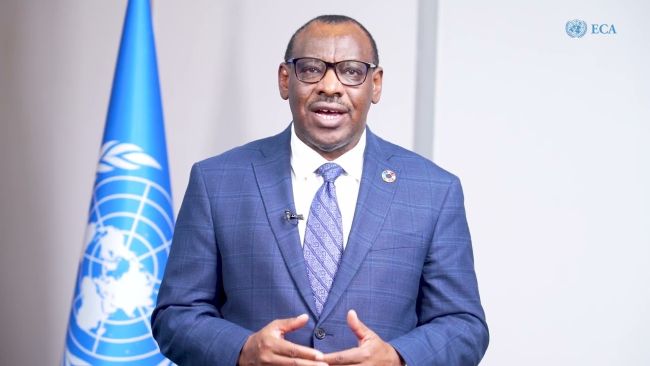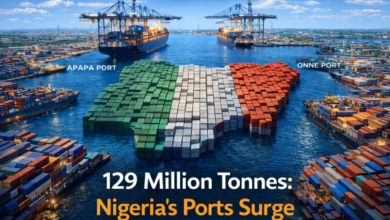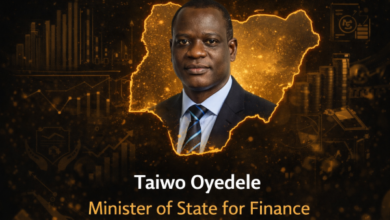Africa’s Future Hinges on Innovation and Integration, Says ECA Chief

Africa is entering a defining moment in its development journey—one where frontier technologies, smart integration, and bold policymaking will determine whether the continent shapes the global economy or remains shaped by it.
This was the central message of Claver Gatete, Executive Secretary of the UN Economic Commission for Africa (ECA), at the Fourth Session of the Committee on Private Sector Development, as the Commission reaffirmed Africa’s potential to lead in the next wave of global economic transformation.
Gatete, addressing delegates against a backdrop of shifting geopolitical dynamics, tightening global finance, and deepening climate vulnerabilities, made it clear that Africa’s competitive edge will emerge from the strategic fusion of innovation and continental integration.
Africa Has Strengths the World Cannot Ignore
Despite structural challenges, Gatete stressed that Africa today commands:
- The world’s youngest population
- Vast renewable and natural resource endowments
- Rapidly expanding digital and mobile ecosystems
- A unified 1.4 billion-person market under AfCFTA
These advantages, he said, position the continent not merely to catch up, but to set the pace in emerging sectors.
Innovation + Integration: The New African Equation
“Integration and innovation must advance together. Alone, each limits potential. Together, they position Africa as a global economic shaper, not a follower,” Gatete declared.
He highlighted transformative African innovations already reshaping global narratives:
- Mobile money systems that outperform those in advanced economies
- Drone-powered medical deliveries reducing mortality rates
- Digital agriculture platforms boosting food output
- AI tools capable of unlocking over $220 billion in new annual productivity
But scale—necessary to fully commercialize these innovations—will only come through deeper regional integration under AfCFTA. A unified market, standardised regulations, and harmonised policies create the demand and investment confidence technology ecosystems need to thrive.
When Innovation Accelerates Integration
Gatete noted that as much as integration drives innovation, innovation also accelerates integration.
Cross-border instant payment systems, which have surged nearly 40% since 2019, are slashing transaction costs and building a more seamless continental marketplace.
Digital trade corridors, fintech infrastructure and interoperable transport systems are already collapsing barriers that historically fragmented Africa’s economic landscape.
Three Imperatives for Africa’s Economic Leap
Gatete listed the crucial actions required to position Africa for global competitiveness:
- Build Digital and Physical Infrastructure
Fibre optic networks, transport links, energy corridors, and payment systems must connect countries into functioning regional economies. - Empower the Private Sector—Especially Youth and Women
Africa’s innovation engine lies in its entrepreneurs. They must have access to capital, markets, and enabling policies. - Harmonise Regulations Across Borders
Policies must support start-up scaling, cross-border investments, e-commerce expansion, and seamless movement of goods and services.
Momentum Already Building Across the Continent
ECA noted that African states are already deploying frontier technologies, digitising public services, and implementing structural reforms to build resilient and future-ready economies.
The Commission pledged continued support for Africa’s Future through:
- Data-driven policy insights
- Technical and regulatory assistance
- Integration support with the AU and RECs
- Stronger public-private partnerships and development collaborations
Gatete urged delegates to turn dialogue into actionable, measurable reforms that position Africa as a continent of innovation, inclusion, and shared prosperity.
BRANDECONOMY Insight
Africa’s economic destiny will no longer be determined by commodity cycles—it will be shaped by technology, talent and trade.
The continent is sitting on a syncretic opportunity where:
- AfCFTA provides scale,
- Technology fuels productivity,
- Demographics supply the talent, and
- Innovation catalyses new industries.
For Africa’s Future, Africa’s challenge is no longer potential—it is execution.
Countries able to harmonise policies, digitise bureaucracies and empower the private sector will become continental engines—defining the Africa of 2030 and beyond.
The race has already begun. And Africa’s future global relevance depends on how quickly innovation and integration converge.










